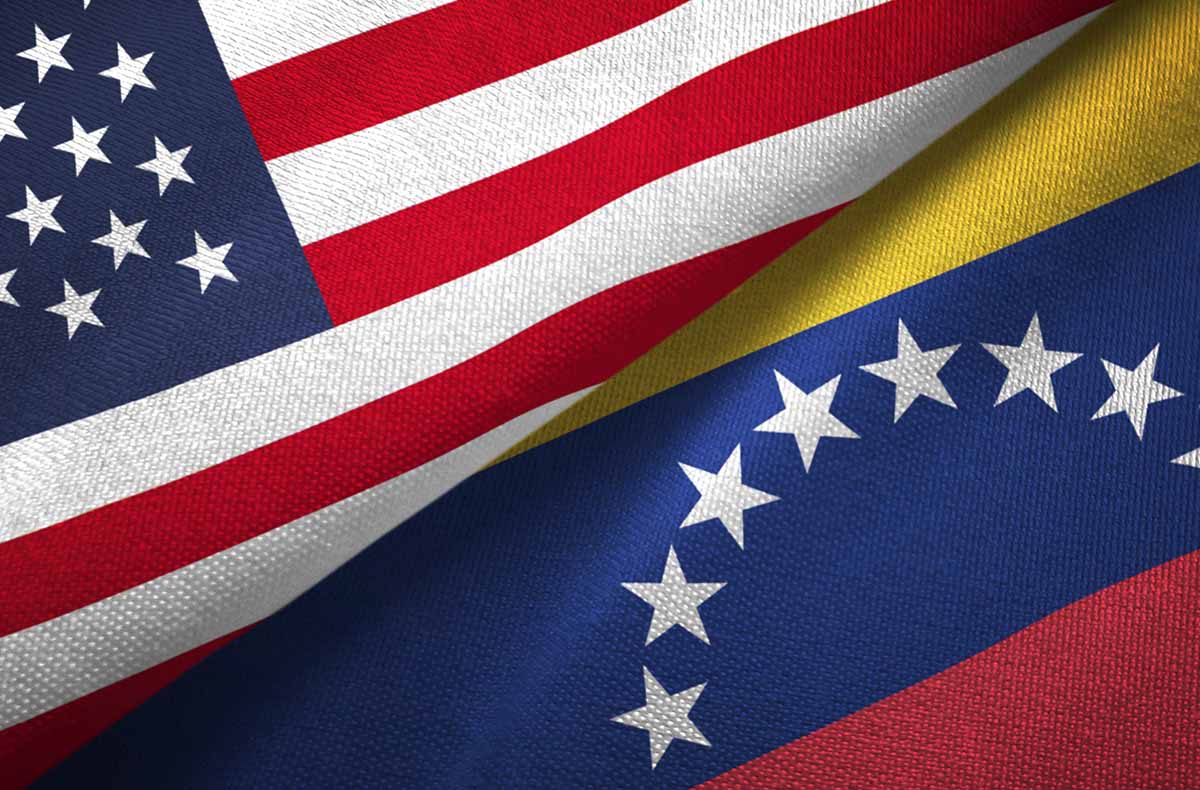
As war continues to rage in Ukraine and conflict in the Pacific cannot be ruled out, it is obvious that our geopolitical institutions are being tested. Many wise men have asked in recent years—where are the diplomats during times of war? The case of Alex Saab is a perfect example of changing international norms, as the U.S. government has made a decision not to recognize professed diplomatic immunity in the case.
Saab was designated a diplomatic special envoy by the Venezuelan government to travel to Iran to discuss a series of commercial transactions. While en route to Iran, his aircraft stopped for fuel in Cape Verde. There, Saab was detained and extradited to the United States to stand trial on one federal count. Many current and former members of diplomatic circles believe Saab was entitled to diplomatic immunity as a designated Venezuelan special envoy, no matter his lack of a diplomatic passport, the stop in a third-party country, or the commercial nature of his travel.
We spoke with Sir Ivor Roberts, a respected veteran of the British Foreign Service and a former special envoy to the Balkans during the Balkan Wars in the 1990s, and obtained his opinion on the case.
We began by asking Sir Ivor about his time as a special envoy to the Balkans and whether he expects continued peace in the region. “I don’t want to be seen as being too complacent because the Balkans can erupt as they have on more than one occasion in the past. There has been some progress between Serbia and Kosovo because the EU and the U.S. have made this conflict a top priority. They have been playing a constructive role to diffuse the situation. The Dayton agreement is not holding up well, but I don’t think the situation will return to bloodshed. We have to build on what we have rather than allow things to deteriorate further.”
Sir Ivor then opined on the four-part test established by the Advisory Committee on Public International Law in The Netherlands on the validity of Saab’s status as a special envoy. “Very clearly, the receiving state [Iran] had requested the visit by Mr. Saab, and the Venezuelan government authorized it. The mission was temporary in nature and from one state to another. So, yes, the four conditions are met.”
We also asked if the status of Venezuela and Iran as “pariah states” in the eyes of the West should have any bearing on the status of Alex Saab and his arrest. “It should have no impact at all,” said Sir Ivor. “The basis of international law is not how one government views another state. Mr. Saab is not under sanctions by the United Nations. If two states recognize each other and exchange envoys, there should be no concern or relevance to third parties to that understanding.”
Sir Ivor continued, “For instance, President Putin is under indictment for war crimes by the International Criminal Court. Signatories of the Treaty established that Courts are obliged to arrest him, but no country which is not a signatory would be obligated to arrest him according to international law. There is no reason the opinion of a third party should be allowed to impact the decision of two nation-states to conduct negotiations.”
The commercial aspect of the Saab mission as a special envoy was also raised with Sir Ivor for comment. He said, “This doesn’t impact his status. Mercantile considerations are one aspect of a nation’s interest. Trade agreements have been front and center in international relations, such as the UK’s decision to withdraw from the European Union. Mercantile issues are an essential part of diplomatic activity. International security is another national interest. Business interests may be just as important. The fact that Mr. Saab was involved in commercial negotiations is irrelevant to his standing as a recognized special envoy. It is fair to say that the presiding U.S. judge in the legal case spoke in disparaging terms, as if ‘doing deals’ in his words, is somehow a bad thing.”
We closed by asking Sir Ivor if he believed Alex Saab should have maintained diplomatic immunity during his trip to Iran. He answered clearly in the affirmative. “Mr. Saab didn’t travel there to sell arms or to engage in terrorism. He went there to conduct a negotiation between two governments. He met all the criteria.”
Sir Ivor closed with a discussion about diplomatic passports. “People should understand: Holding a diplomatic passport is an indication but not a requisite of diplomatic status. However, the absence of a diplomatic passport is not an indication that someone is not a diplomat. For the first time, in 1994, the UK issued diplomatic passports. I conducted business as a diplomat long before that year without a diplomatic passport. The issue is accreditation by the receiving state. Mr. Saab had this fulfilled as a Venezuelan special envoy.”
To emphasize, while not carrying a diplomatic passport does not necessarily indicate that the person is not a diplomat or special envoy, carrying a diplomatic passport does not make one a diplomat either.”